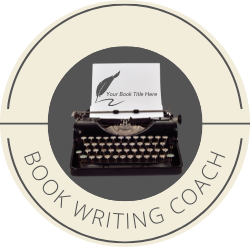First Draft of Your Book
Introduction
Writing the first draft is scary. It’s the most challenging part of any project, even when you’re just starting. However, knowing what to do and having the right tools can be easier than expected. This blog post will walk you through the steps of writing your first draft by helping you ask yourself some critical questions about your project. And providing resources that can help make this process easier for anyone who has ever felt stuck in the throes of writer’s block while staring at an empty page or screen, wondering how to start writing their book or screenplay.
Start with a question.
One of the most important things to do when writing a book is to start with a question. The question can be about anything important to you, but it should be something that can last for a long time. For example, if you’re writing about how you landed your first professional job, your question might be: “What was it like to look for employment in my field?” Phrasing prompts in the form of questions works well because it allows readers’ imaginations and mindsets to settle on the subject matter before it becomes more specific.
Your question could be: “How did my childhood experiences affect who I am today?” Or perhaps “What’s wrong with our country today?” If these questions don’t work for you or don’t resonate with what kind of book you want to write, find another one that does! Just make sure that whatever question(s) drive the narrative are ones that will last long enough. Hence, readers get into them before they stop reading altogether out of sheer boredom or lack of interest.
Get comfortable
Before you start writing, make sure you’re comfortable. Sit in a chair that allows you to rest your elbows on the desk and keep both wrists straight. If your knees are too high or too low, adjust them so they’re slightly lower than the level of your hips. Close your eyes and take a few deep breaths as you relax into your chair—this will help prepare you mentally for what comes next.
Now focus on the question at the heart of this book: What is my book about? Open your eyes and write down whatever comes to mind first—no matter how silly it sounds! Opening your eyes gives you a fresh start; it can be a fantastic exercise to overcome writer’s block.
Write it as if in a conversation with yourself.
The best way to write a draft is in the first person. It’s a little bit of a weird thing to do, but it makes sense, and it works. If you think about how you usually speak with people, or even if you write emails and letters or postcards, we are not using the word “I” all the time. Instead, we talk in the third person: “He said this, she did that….”
You need to get out of your head and say what happened as if you were sitting there telling someone else about it in conversation. Instead of saying “I felt unfortunate when…” try saying something more like “I had never felt so downhearted before… I was miserable…. I was heartbroken…. My heart sank… I could hardly bear the sadness…. What could I do? Where could I turn? How would things ever get better again?
Use your resources.
The first draft of your book does not need to be perfect or complete. Instead, you should expect a jumble of ideas, notes, and thoughts that may not all fit together in one cohesive unit. That’s okay!
It’s important to remember that this is the time when you aren’t trying to impress anyone but yourself. Instead, use your resources as much as possible! Research other people’s experiences with the subject matter and consider their opinions on what needs further exploration within the topic and how you can improve it. Reading other books on the subject matter can also give an idea of what areas could use more work—or perhaps add something new!
Don’t get too attached at this stage.
Remember: your first draft is to write it down and ensure you know what happens. You don’t have to worry about spelling, grammar, or sentence structure at this stage. It’s important not to get too attached to your words or ideas in your first draft—you will change them later!
The most important thing is that you get the story down on paper so that it becomes natural for you (and anyone else who reads it).
Write your first draft as if it is only for you.
The first draft is for you. So keep in mind:
- Don’t worry about grammar, spelling, or punctuation. You are writing for yourself and no one else right now!
- Don’t worry about what other people will think of it, especially people who don’t know how to write well themselves. They will want to change everything anyway, and they won’t understand that this is just the beginning stage of your book and not finished yet.
- Don’t worry about how long it takes or how much time goes into writing a book in general—there are no rules here! Some books take years to write, while others only take months (sometimes even days). The only thing that matters is when you sit down at the computer each day and begin typing your thoughts onto paper—or even better yet, if you use dictation software like Dragon NaturallySpeaking, which turns speech into text quickly. But, then, whatever comes out on screen is enough for now because no one will see those words except for us later when we publish them.
Conclusion
This is only the beginning. It’s a great place to start, but getting feedback from others before moving on can be helpful after your first draft. And there are so many options for how you want to structure your book after that—it’s up to you!
A Writing Coach can help you make the most of your time at any stage of the writing process. If you find it difficult to get past barriers to writing on your first draft, consider bringing in an Individual Writing Coach to help you move forward.

Erica Mongé-Greer, Ph. D. is a lifelong academic and published writer. Her areas of expertise are teaching, coaching, and helping people get their writing projects started, through the writing process, and to the finish line. Erica enjoys spending time with her family when she is not teaching, writing academic papers, or coaching.
